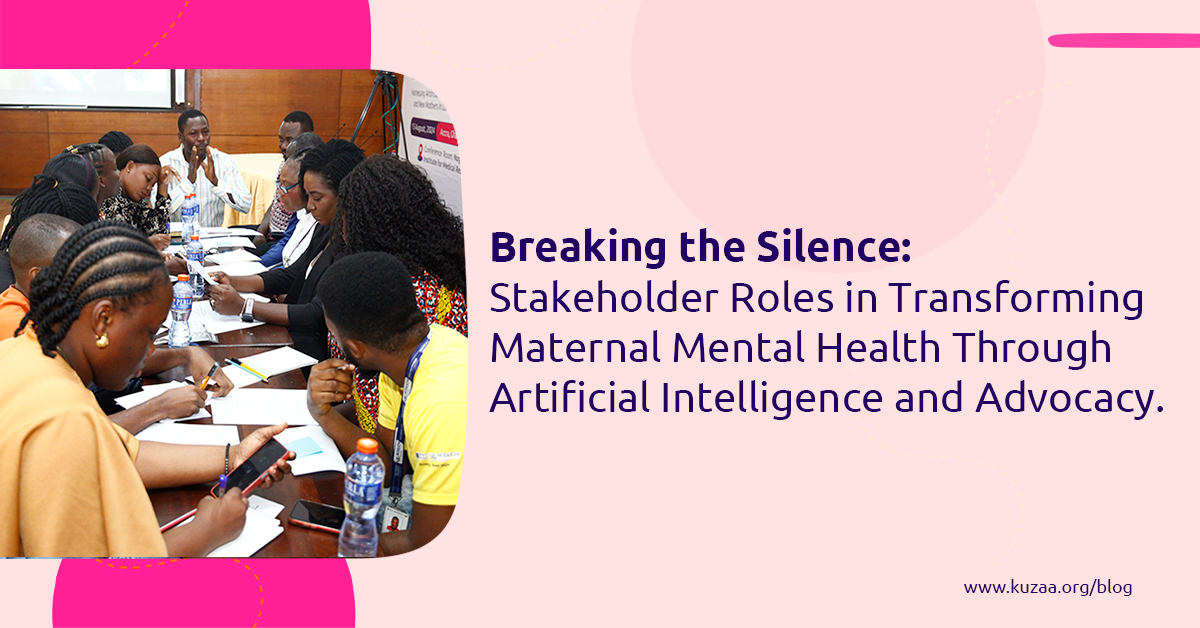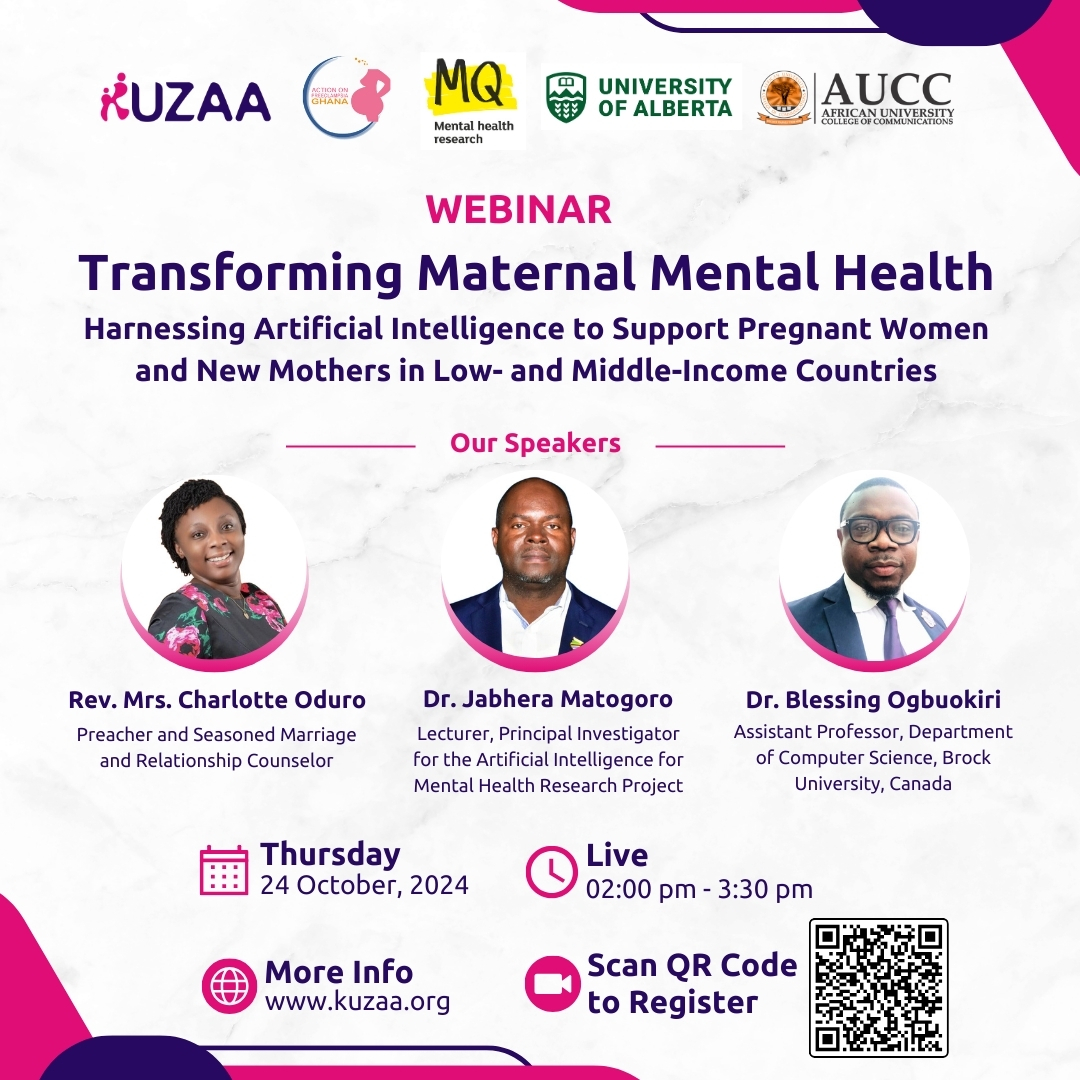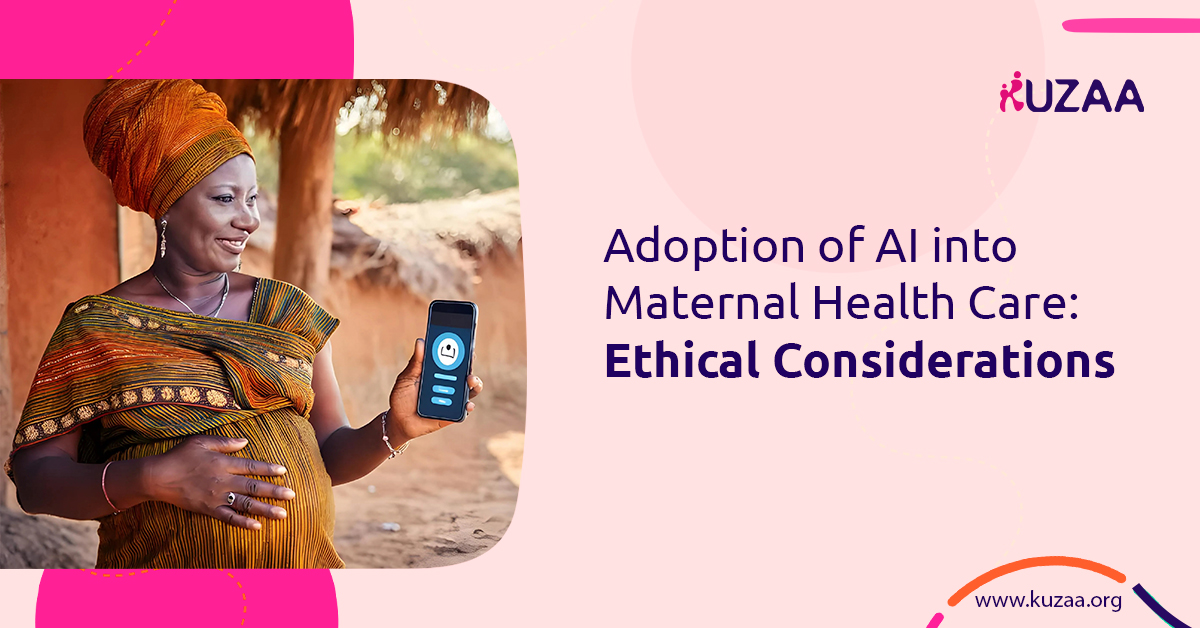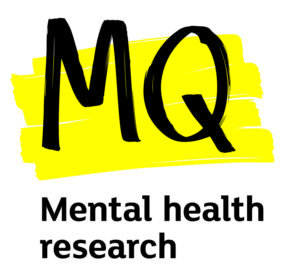Mama X, our fictional first-time mother, suffers from depression and anxiety after giving birth. Her worry and desire to ensure a healthy life for herself and the new life set her on an overwhelming journey. She had tried community counselling sessions, individual counselling sessions with her obstetrician and some personal physical activities, which helped her a lot, but there was still more room to do better and to achieve overall health and wellbeing for herself and her baby.

Her journey to seek help from the healthcare system and various support groups started to become a challenge and overwhelming because of people’s misconceptions and myths about mental health including mental disorders having a spiritual cause, fear of judgement, societal pressure to conform, cultural taboos around mental health, and stigma. She communicated this to her Obstetrician who referred her to a psychologist friend. The psychologist, understanding her complaints and feelings, suggested they try a new approach of using artificial intelligence (AI) tools to address the depression and anxiety she may be experiencing.
He elaborated that using AI tools such as Chatbots in addressing PDA is a new wave, however, there have been some breakthroughs and he can also recommend this new approach based on previous experience of his clients who also used AI applications for managing PDA. He told her he could put her through the steps if she was interested in trying it. He also mentioned that the use of Chatbot is common in more developed countries, and it has proven to help predict, diagnose, and treat PDA. In simple terms, he explained that Chatbot works like other communication apps but with the ability to recommend PDA management solutions based on the texts and chats received. He mentioned, “this approach is good to overcome the stigma and other societal pressures you are facing from your community, however, it is not well recognized in the African setting”. This recommendation stimulated her interest and offered hope in her otherwise overwhelming journey.

Initially, the concept of using AI for mental health support seemed foreign and a bit intimidating to Mama X. She had always associated AI with technology-driven industries and gadgets, not with something as personal as the emotional struggles new mothers face as they navigate motherhood. However, her desperation to find relief from PDA and her trust in her psychologist motivated her to explore this new avenue. She knew little about how Chatbots could be integrated into maternal mental health care.
The idea of having to chat with an imaginary machine on a phone to provide personalized solutions to PDAs was new and somewhat unsettling. Her psychologist with previous experience and evidence on PDA and AI narrated the use of Chatbots in a simple and relatable way. He illustrated, “consider this Chabot as a close friend, you share your thoughts and feelings with and receive suggestive ways to deal with your feelings. It is an app on your phone that you can use to record your mood and get suggestions on what to do. You can freely express yourself and receive solutions without anyone getting to know what you are going through ”.
She sighed, and with a worried face explained that she was not conversant with the use of smartphones, because she had low trust in technology, and could not afford the cost associated with the purchase of an advanced smartphone and mobile bundle to download and access the Chatbot and slight concerns about the safety of her data and identity. Her psychologist assured her of the safety of Chatbots in terms of the efficacy and privacy of her personal information. He explained such tools have been tested by scientists and used by several other women in developed countries who share similar concerns.
He further elaborated that the cost of using the Chatbot is below the cost of having in-person counselling sessions, and she may only have to come to the hospital in extreme cases. After several hours of talk, Mama X decided to at least try the Chatbot for some time. Before she left, he added, “Chatbot will not replace me, if you have any difficulties, please feel free to reach out to me.”
With the help of the Chatbot, Mama X began to see a positive shift in her emotional well-being. The application offered her personalized support, helping her track her mood, manage anxiety, and connect with virtual support groups. The Chatbot aid gave her the strength to navigate the challenges of PDA. Continuing her journey, she realized that embracing AI in maternal mental health care was not just about technology; it was about finding innovative ways to connect, heal, and thrive.

In her small village, amidst the barriers, she discovered a new path to hope and resilience, paving the way for other mothers to follow. Though Mama X and her challenging issue of PDA and overwhelming journey to find solace is fiction, this is a representation, based on the literature of what pregnant women and new mothers may be facing in managing PDA in the Africa context.
While the use of AI in managing PDA sounds exciting, the issue of community and cultural acceptance still stands with questions such as; How safe is AI in managing PDA? What are the ethical considerations to be considered?? How accurate is the Chatbot in providing solutions??? What will be some of the community and cultural issues hindering the use of AI???? Which organization controls the Chatbot application????? You can share your thoughts to help and prepare this mother for what is ahead of her in her journey. Join us on our next episode on the ethical issues to be considered in adopting AI in maternal mental healthcare.
Next Episode: ADOPTION OF AI IN MATERNAL MENTAL HEALTH CARE: ETHICAL ISSUES TO BE CONSIDERED










